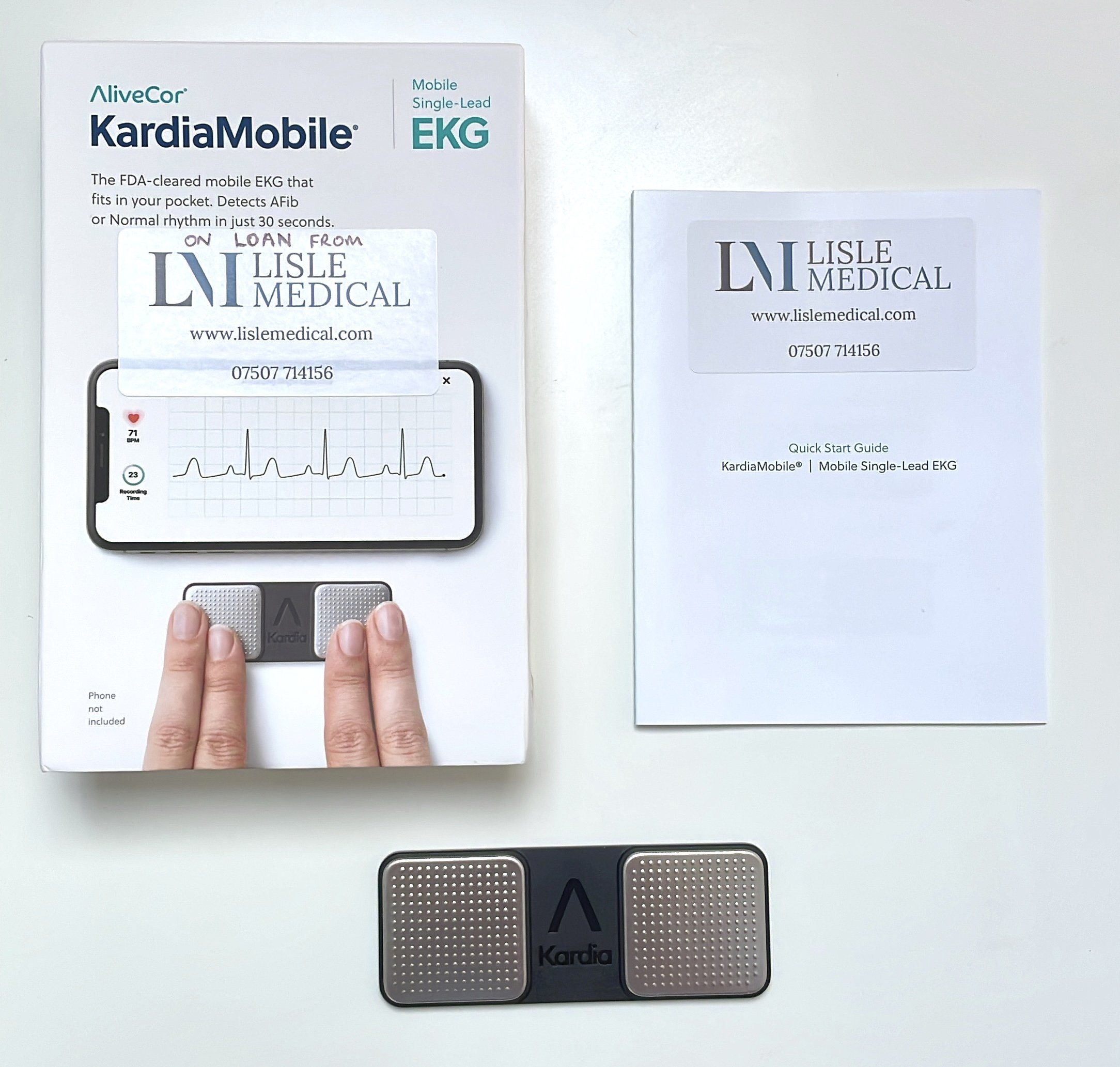Heart rhythm and palpitations
Lisle Medical lends wearable and portable monitoring devices like the KardiaMobile to patients.
Palpitations can be a really concerning symptom, shrouded in uncertainty and sometimes a diagnostic challenge. The doctor asks you questions about what it feels like, but knowing how to describe it can be a challenge, and if it’s not happening with sufficient frequency that the doctor can capture it on an ECG how do you proceed?
It’s also really important to determine if you have heart rhythm disturbances. Atrial fibrillation, the most common example, is a big risk factor for strokes, a risk that is easily treatable once you know it’s there. Other rhythm disturbances require the input of a cardiologist but it’s often relatively straightforward to put things right. But how do you find out?
Luckily there are now many devices available on the market.
If you’ve treated yourself to a Series 7 Apple watch then you’re wearing a pretty good one already. This isn’t the only way though.
AliveCor have created the KardiaMobile, with favourable reviews by the FDA in the US and NICE here in the UK to diagnose certain rhythm disturbances. A tiny device smaller than a credit card (but slightly thicker) connects wirelessly to your smartphone and with your fingers on each end of it a recording of your heart rhythm starts almost as soon as the app is open on your phone. You can send a PDF to your doctor, or just store it on your phone.
Zio XT is a discreet wearable device that sticks on your upper chest for up to two weeks. It constantly records your heart rhythm and you can tell it if you feel any symptoms. You then post it off to Zio who analyse it and send you or your doctor a report within hours of receiving it.
Lisle Medical can now lend you a KardiaMobile device for a few weeks to use as and when you need, and is shortly going to be offering the Zio XT as well to patients. [Update Sep 2022 - Lisle Medical is now proud to partner with iRhythm Technologies in offering the Zio XT service.]
Technological developments in the wearable devices sector are really exciting and can transform the doctor’s ability to manage your health. Lisle Medical will never use these as a way to move away from face to face care. More devices are available too - for example blood sugar monitors to understand what your diet is doing to you, fingertip probes to determine your pulse and oxygen levels, blood pressure monitors to really establish your blood pressure readings at home. If you are interested in exploring your options please get in touch.


